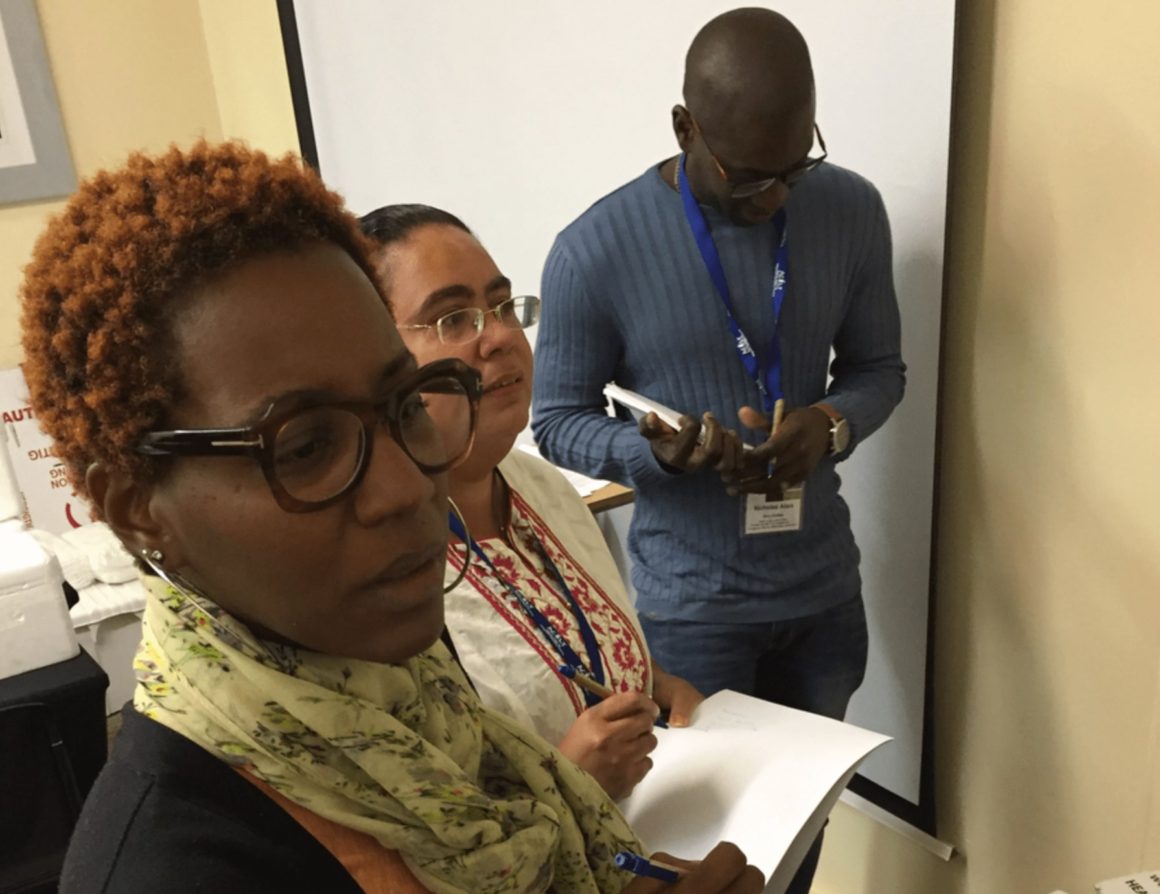My name is Márcia Schneider Zuzarte de Mendonça Gomes de Carvalho. I am Biomedical Scientist with a Masters in Genetics. I currently work at the Public Health National Institute in Angola as Laboratory Manager for the Tuberculosis Reference Lab. The thing I am most proud of are the values that my parents instilled in me, such as honesty, humility, humanity and always seek to learn more about everything and everyone in order to strengthen my self-confidence. I strive to put those values into practice by making a difference in society through my health work. My wish is to get more involved in health social work that would enable me to better understand the main challenges, difficulties and hopes of poor people and in particular that of women and children.
It has always been my desire to work with women in a leadership role due to my family and children. I believe women have a unique approach to science and its application that emphasizes the human dimension of science and technology, and its value in improving the quality of life and the empowerment of humankind. However, what I’ve observed and faced is that ego can impede success and divert us from the right path. My biggest challenge is systematic challenges common in the African continent. We need to focus and be persistent in what we believe in, know why we are doing and for whom we are doing it. I believe that I can get through all obstacles to being myself, being mature, bearing in mind that everyone has the right to have a good quality health and never compromising my principles.
I believe that there is progress due to the increase in opportunities in health for women which has led to the significant increase of the number of women enrolling into education in sub-Saharan Africa in recent years. However, despite this remarkable progress, the reality remains that the education system in Africa is simply overwhelmed by the increase in demand and cannot accommodate students, with preference often given to male students. Women in Africa are also faced with significant obstacles in accessing higher education especially in poor countries with high levels of inequalities, but despite this, we can already see some opportunities for women in health quality programs.
My advice to women in health is that they should not be afraid to break down barriers such as the deeply-rooted culture of gender inequality, traditional attitudes towards the role of girls and women that are linked to lack of ambition, self-confidence and self-esteem. A high self-esteem is crucial for the personal and professional development of women. On the other hand, it is important to have goals in life, to focus and never lose direction or be discouraged by life’s obstacles which should give us life experience and courage to lead.

